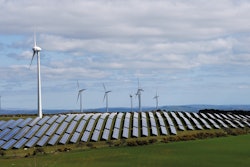Government-backed renewable diesel continues to gain market share while compounding a conventional diesel shortage around the rest of the nation, according to fuel experts.
Renewable diesel and biodiesel climbed to a 21% share of all diesel fuel sold in California in 2020, according to a recent report from the California Air Resources Board. Both fuels accounted for 44% of the state’s Low Carbon Fuel Standard (LCFS) credits in 2020.
Credits acquired by renewable fuel producers and fleets using those fuels are sold to other entities required by the state to offset their emissions. It’s big business with more than 25 million LCFS credits transacted in 2021 – a value of $4.7 billion, according to Pacific Gas & Electric.
Heavy-duty trucking is one of the most difficult segments to decarbonize, leading lawmakers to require and incentivize the production and use of renewable diesel and biodiesel. Switching to these conventional diesel replacements not only leads to beneficial California’s LCFS credits but also provides credits from the federal government’s Renewable Fuel Standard program called Renewable Identification Numbers or RINs.
Under RFS, fuel producers are required to increase the amount of renewable fuels in the U.S. each year. That amount has grown from 15 billion gallons in 2012 to 36 billion gallons in 2022, according to the Department of Energy.
[Related: Fleets can go green before ordering electric trucks]
The biofuel industry got additional help last December from the Department of Agriculture, which set aside $800 million for biofuel producers and supporting infrastructure. Also, the Inflation Reduction Act enacted in August extended the $1 per gallon blenders tax credit to the end of 2024 for both biodiesel and renewable diesel.










